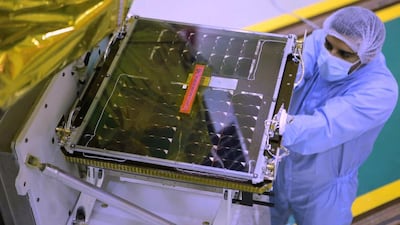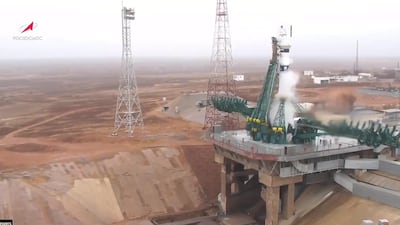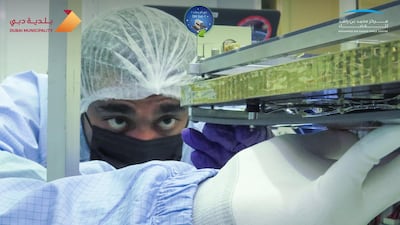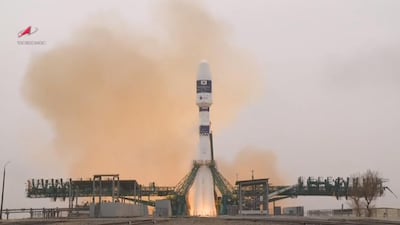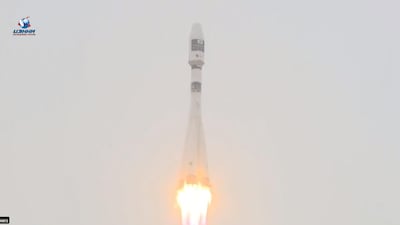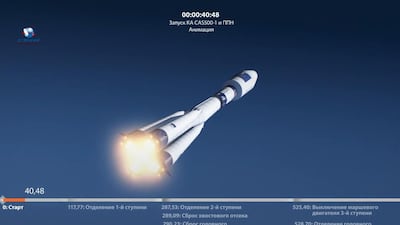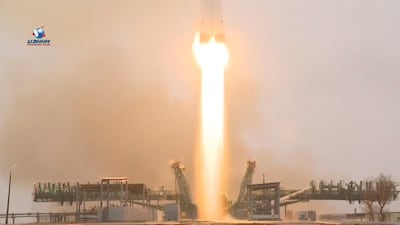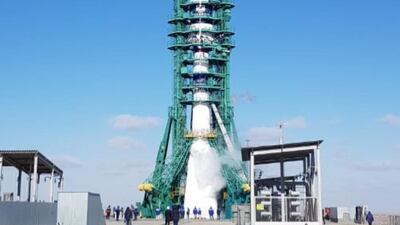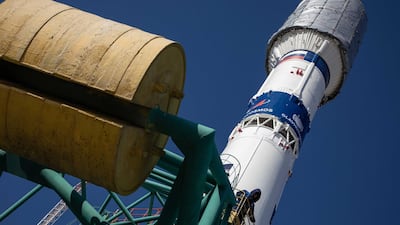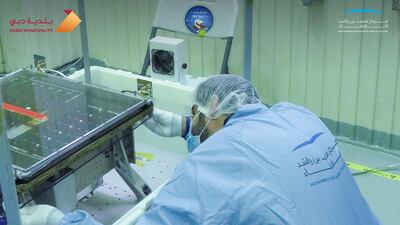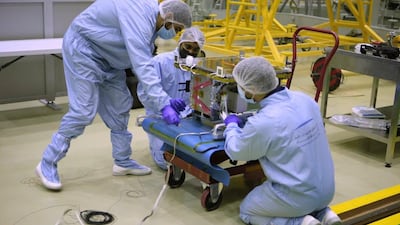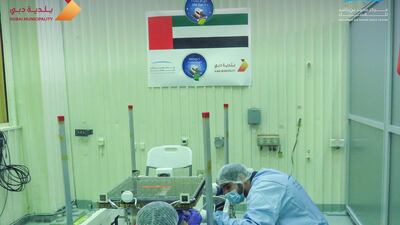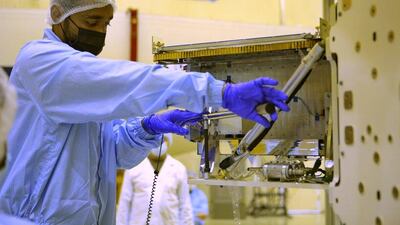A Russian rocket carrying four Arab satellites, including Dubai's environment nanosat, took off from Baikonur Cosmodrome in Kazakhstan on Monday.
The commercial rideshare mission took off at 10.07am, Gulf Standard Time, with payload separation four hours later.
The Soyuz 2.1a rocket was carrying 38 payloads from 18 countries, including two from Saudi Arabia, one from the UAE and another from Tunisia.
The primary payload was South Korea's CAS500-1 satellite. The initial launch attempt on March 20 was postponed by a voltage spike in the upper stage of the rocket.
Once Dubai's DMSat-1 becomes operational, Dubai Municipality and Mohammed bin Rashid Space Centre will use the data it collects to create an air quality map of the UAE.
Built by the University of Toronto’s Space Flight Laboratory, the 15-kilogram small satellite will use three scientific instruments to gather data – a polarimeter imager and two spectrometers.
It will take scientific images of the atmosphere over the UAE, helping measure the location and levels of air pollutants and greenhouse gases. Images will be received days after launch.
Dust caused by regular sandstorms in the Emirates was considered as an air pollutant.
Alia Al Harmoudi, director of the environment department at Dubai Municipality, said dust is harmful to health.
“It [dust] is one of the main areas we will try to utilise through the satellite to enhance health studies and measure how it is related to health,” she said during a media briefing last week.
The satellite will also measure levels of greenhouse gases present over the UAE that contribute to climate change, such as carbon dioxide, methane and water vapour.
The payload from Saudi Arabia includes the Kingdom’s Shaheen Sat satellite. It will be used for photography and maritime tracking. University students designed the second satellite for educational use.
Tunisia’s Challenge One was launched into space on Monday. It will focus on the Internet of Things and is a precursor to a constellation of 30 other satellites.
